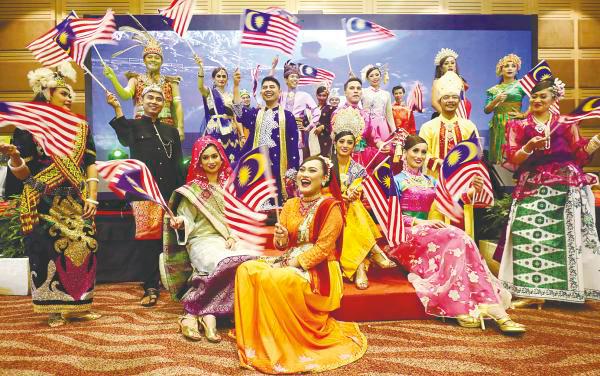AS we bask in the inspiration of the historic installation of Malaysia’s seventeenth King, His Majesty Sultan Ibrahim, we must recommit ourselves as a vibrant multicultural nation to the principles and high calling he has summoned forth from us.
The King has long been a unifying figure and a proponent of unity and prosperity for all ethnic groups in the country. His commitment to the “Bangsa Johor” concept of uniting people of various races is a goal he espouses for the nation as a whole.
We must join him in building connections with fellow Malaysians and in committing to stronger ties and greater understanding among all ethnic groups.
In pursuing these noble goals of unity and fairness among all our people, it is beneficial to look at other thriving multicultural societies for examples of meaningful achievements, from which we can benefit.
In Singapore, we find a model of success in all these areas, with the island-city showing its strong connection and support by having their former prime minister Lee Hsien Loong in attendance at the King’s installation.
Other countries, India and the Netherlands, for example, have also progressed significantly in establishing harmony, equity and prosperity among their multicultural societies.
Research from the Organisation for Economic Cooperation and Development, based in Paris, tells us that the main drivers for social mobility and equity in multicultural societies are: solid minimum wage standards and equal access to education – the key levers to promote equal opportunity.
Enacting policies that break down barriers in these areas will promote social connections of tolerance and respect among ethnic groups.
Equitable education opportunities go hand-in-hand with increased employment probability, which in turn will create a more productive workforce and elevate the nation’s economic profile.
The Sustainable Knowledge Platform of India found that it had successfully lifted more than 271 million people out of multidimensional poverty through economic growth and empowerment.
Enhanced access to nutrition, child health, education, sanitation, clean drinking water, electricity and adequate housing had reduced inequalities. Only by lifting those in greatest need, can a nation lift its people as a whole.
In the Netherlands, society is characterised by social welfare for all and a national progressive mindset. It has a well-established social security system, which provides all citizens access to quality healthcare, education and other welfare benefits.
The nation takes pride on individual rights, tolerance and social inclusivity. Its workforce is diverse and highly educated. The country values education, leading to a highly skilled and qualified labour force.
The Netherlands boasts a high literacy rate and has a strong tradition of promoting vocational training and technology education. Furthermore, the country promotes gender equality in the workplace, with many women holding leadership positions.
The government has also implemented policies that promote diversity and equal opportunity for career advancement. These insights provide a basis for understanding the dynamics and strengths of Dutch society and its work culture.
In fostering tolerance, respect and understanding, we call on all those in leadership positions to encourage more multicultural community programmes that will bring people together for causes that will benefit all.
Moreover, we expect decorum, maturity, respect and restraint from leaders in the august house. They set a powerful example and a positive tone when they refrain from raising external issues of race, religion and royalty in conducting the serious affairs of the state.
We call on them to fulfill the sacred responsibilities conferred upon them, by creating policies that open doors of opportunity equally to all Malaysians, of every ethnic group. Everyone in our nation should enjoy greater happiness and prosperity.
As Sultan Ibrahim, said: “I will discharge my duties faithfully and honestly, and rule fairly, with full consideration to all segments of society, in order to safeguard the well-being and sovereignty of the country.”
Let us join him to bring about a more unified nation, whose strength is in the diversity of its people and a more equitable system for all. Unity is our precious asset.









